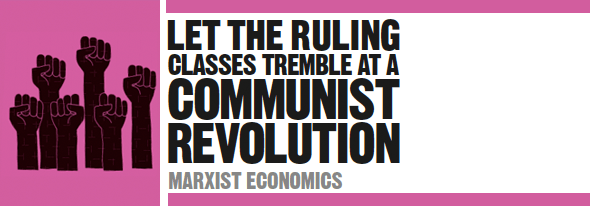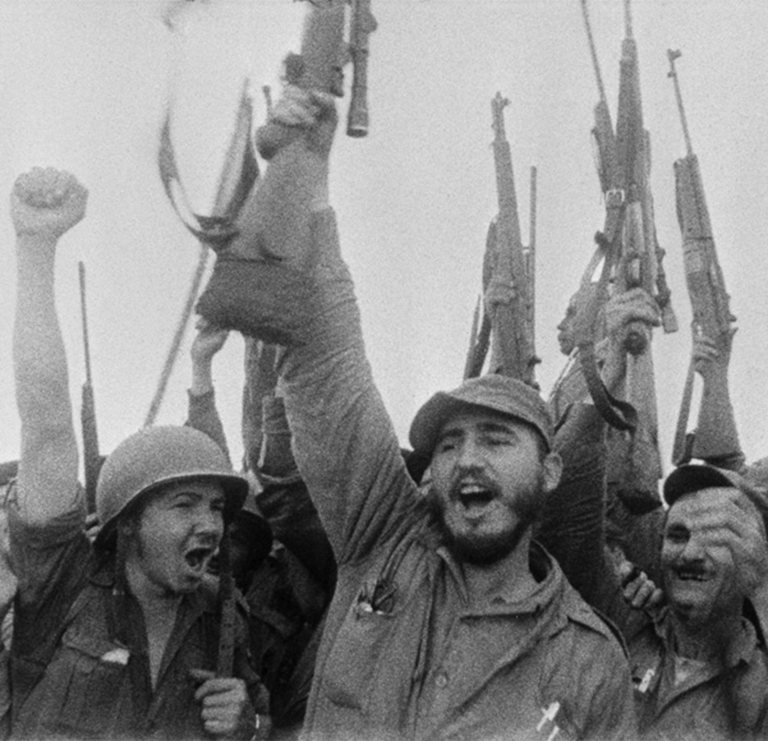

Economic systems
Karl Marx (1818–83)
1789 Revolution sweeps away the old feudal regime and aristocracy in France.
1816 German thinker Georg Hegel explains his dialectics in The Science of Logic.
1848 Revolutions spring up throughout Europe, led by disaffected members of the middle and working classes.
1922 The USSR is established on Marxist principles under Vladimir Lenin.
1949 Mao Zedong becomes the founding father of the People’s Republic of China.
1989 The fall of the Berlin Wall symbolizes the collapse of Eastern Bloc communism.
Although much of economics is concerned with free market economies, it should not be forgotten that for a large part of the 20th century up to a third of the world was under some form of communist or socialist rule. These states had centralized, or planned, economies. Political philosophers were looking for an alternative to capitalism even as the modern free market economies emerged. However, a truly economic argument for communism was not formulated until the middle of the 19th century, when Karl Marx wrote his critique of capitalism.

While Marx’s influence is popularly seen as political, he was, perhaps more than anything else, an economist. He believed that the economic organization of society forms the basis for its social and political organization; economics, therefore, drives social change. Marx saw history not in terms of war or colonialism, but as a progression of different economic systems, which gave birth to new forms of social organization.
With the rise of the market came merchants, and with the factory, an industrial proletariat. Feudalism had been replaced by capitalism, which in turn would be supplanted by communism. In his 1848 Communist Manifesto, Marx said that this would be brought about by revolution. To explain what he saw as the inevitability of this change, he analyzed the capitalist system and its inherent weaknesses in the three-volume Das Kapital (Capital).
However, Marx was not absolutely critical of capitalism. He viewed capitalism as a historically necessary stage in economic progress, replacing systems that he considered to be outmoded: feudalism (where peasants were legally tied to their local land-owning lord), and mercantilism (in which governments control foreign trade). He almost admiringly described how it had driven technological innovation and industrial efficiency. But ultimately he believed that capitalism was only a passing stage and an imperfect system whose flaws would inevitably lead to its downfall and replacement.
At the heart of his analysis is the division of society into the “bourgeoisie,” a minority who own the means of production, and the “proletariat,” the majority who make up the workforce. For Marx this division characterizes capitalism.
"The bourgeoisie… compels all nations, on pain of extinction, to adopt the bourgeois mode of production."
Karl Marx, Friedrich Engels

In June 1848, workers in Paris rose up against the government and manned barricades. The uprising was part of a wave of failed revolutions across Europe. It was quickly suppressed.
With the advent of modern industry the bourgeoisie had effectively become the ruling class, because ownership of the means of production gave them the upper hand over the majority of the population, the proletariat. While workers produced goods and services in return for a wage, the owners of capital—the industrialists and factory owners—sold those goods and services for profit. If, as Marx believed, a commodity’s value is based on the labor needed to produce it, capitalists must price the finished goods by first adding the price of labor to the initial commodity cost, then adding profit. In a capitalist system the worker must produce more value than he receives in wages. In this way capitalists extract a surplus value from the workers—this is profit.
To maximize profit, it is clearly in the interests of the capitalist to keep wages at a minimum but also to introduce technology to improve efficiency, often condemning the workforce to degrading or monotonous work, or even unemployment. This exploitation of the workforce, seen by Marx as a necessary feature of capitalism, denies workers both an adequate financial reward and job satisfaction, alienating them from the process of production. Marx argued that this alienation would inevitably lead to social unrest.

By the mid-19th century new technology and the specialization of labor were making industry more efficient. The result, Marx argued, was an exploited, alienated workforce.
Another essential element of capitalism is competition between producers. To compete in a market, a firm must try not only to reduce production costs but also to undercut its competitors’ prices. In the process some producers fail and go bankrupt, while others take over an increasing portion of the market. The tendency, as Marx saw it, was toward fewer and fewer producers controlling the means of production and a concentration of wealth in the hands of an ever smaller bourgeoisie. In the long term this would create monopolies that could exploit not only the workers but also consumers. At the same time the ranks of the proletariat would be swelled by the former bourgeoisie and the unemployed.
Marx saw competition as the cause of another failing of the capitalist system: the desire to jump into markets where profits are increasing encourages increased production, sometimes regardless of demand. This overproduction leads not only to waste but also to stagnation and even decline of the whole economy. By its nature capitalism is unplanned and ruled only by the complexities of the market—economic crises are an inevitable result of the mismatch of supply and demand. Therefore, growth in a capitalist economy is not a smooth progression but is interrupted by periodic crises, which Marx believed would become more and more frequent. The hardship created by these crises would be especially felt by the proletariat.
To Marx these apparently insurmountable weaknesses in the capitalist economy would lead to its eventual collapse. To explain how this would come about, he used an idea proposed by the German philosopher Georg Hegel, which showed how contradictory notions are resolved in a process of dialectic: every idea or state of affairs (the original “thesis”), contains within it a contradiction (the “antithesis”), and from this conflict a new, richer notion (the “synthesis”) arises.
Marx saw the inherent contradictions within economies –personified in the conflicts between different groups or classes—as driving historical change. He analyzed the exploitation and alienation of the proletariat by the bourgeoisie under capitalism as an example of a social contradiction, where the thesis (capitalism) contains its own antithesis (the exploited workers). The oppression and alienation of the workers, combined with the inherent instability of a capitalist economy lurching from crisis to crisis, would result in massive social unrest. A proletarian revolution was both inevitable and necessary to usher in capitalism’s successor in the historical progression (the synthesis)—communism. Marx encouraged revolution in the closing words of the Communist Manifesto: “The proletarians have nothing to lose but their chains. They have a world to win. Working men of all countries, unite!”

With nothing to lose but his chains, a worker symbolically breaks free of his oppressors in a poster commemorating the 1917 Russian Revolution—an event directly inspired by Marx’s ideas.
Marx predicted that once the bourgeoisie had been overthrown, the means of production would be taken over by the proletariat. At first this would amount to what Marx called a “dictatorship by the proletariat:” a form of socialism where economic power was in the hands of the majority. However, this would be only a first step toward the abolition of private property in favor of common ownership in a communist state.
In contrast to his exhaustive analysis of capitalism, Marx wrote relatively little about the details of the communist economy that would replace capitalism, except that it should be based on common ownership and a planned economy to ensure matching supply and demand. Insofar as it removed all the iniquities and instability of capitalism, he regarded communism as the culmination of a historical progression. His criticism of the capitalist economy was met, unsurprisingly, with hostility. Most economists at the time saw the free market as a means of ensuring economic growth and prosperity, at least for a certain class of people. But Marx was not without his supporters, mainly among political thinkers, and his prediction of communist revolution proved correct—although not where he expected, in industrialized Europe and America, but in rural countries such as Russia and China.
Marx did not live to see the establishment of communist states such as the USSR and the People’s Republic of China, and he could not have envisaged the reality of how inefficient such planned economies would be. Today, only a handful of communist-planned economies (Cuba, China, Laos, Vietnam, and North Korea) have survived. There is debate over just how “Marxist” the communism of these states was under the leadership of the likes of Stalin and Mao, but the collapse of communism in the Eastern bloc and the liberalization of the Chinese economy have been seen by many economists as evidence that Marx’s theories were flawed.

In 1959, Fidel Castro’s revolutionaries seized power in Cuba. At first primarily a nationalist revolution, it soon became a communist one when Castro allied himself with the Soviet Union.
In the decades following World War II Western Europe developed a “third way” between communism and capitalism. Many European Union states still operate mixed economies with varying degrees of state intervention and ownership, although some, most notably Great Britain, have moved away from mixed economies toward a more laissez-faire economic policy, where the state plays a smaller role. However, with communism largely discredited, and the collapse of capitalism apparently no nearer than in Marx’s time, it would appear that his theory of capitalist dynamism leading to crisis and revolution were wrong. Nevertheless, Marxist economic theory has maintained a following, and recent financial crises have prompted a reappraisal of his ideas. Increasing inequality, concentration of wealth in a few large companies, frequent economic crises, and the “credit crunch” of 2008 have all been blamed on the free market economy. While not going so far as to advocate revolution or even socialism, a growing body of thinkers—not all of them from the political Left—is taking elements of Marx’s critique of capitalism seriously.

Born in Trier, Prussia, in 1818, Karl Marx was the son of a lawyer who had converted from Judaism to Christianity. Marx studied law but became interested in philosophy, in which he gained a PhD from Jena University. In 1842, Marx moved to Cologne and started work as a journalist, but his socialist views soon led to censorship, and he fled to Paris with his wife, Jenny.
It was in Paris that he met the German-born industrialist Friedrich Engels, with whom he wrote the Communist Manifesto in 1848. He moved back to Germany briefly the following year, but when the revolutions were quashed, he left for London, where he spent the rest of his life. There, he devoted his time to writing, notably Capital, and died in poverty in 1883, despite continual financial assistance from Engels.
1848 Manifesto of the Communist Party (with Friedrich Engels)
1858 Contribution to the Critique of Political Economy
1867, 1885, 1894 Capital: A Critique of Political Economy